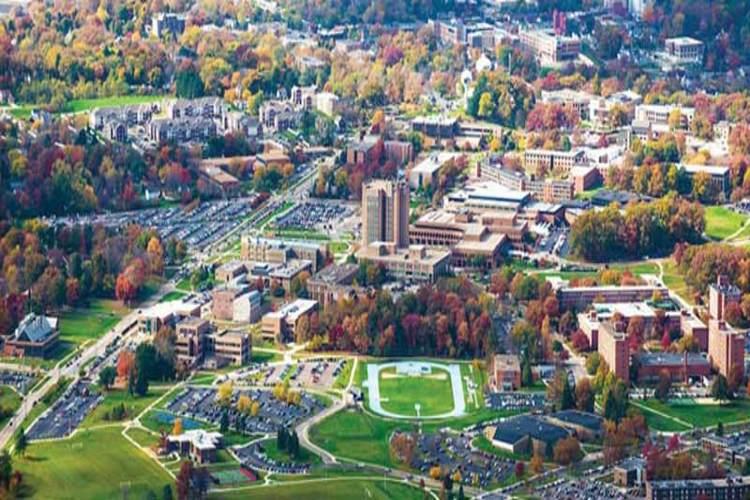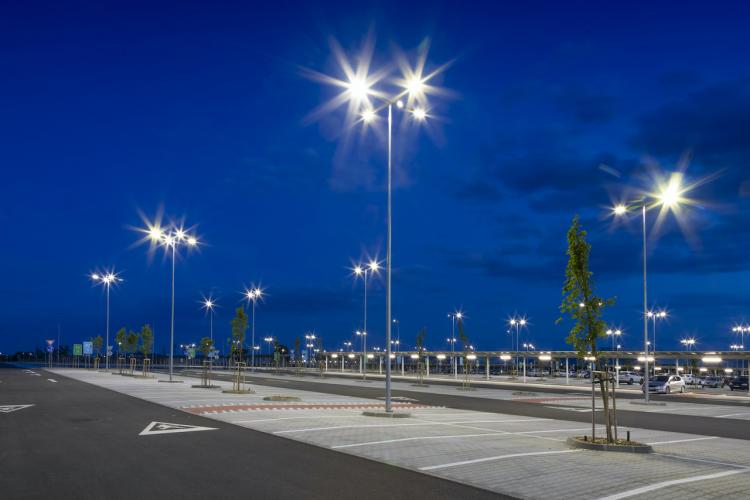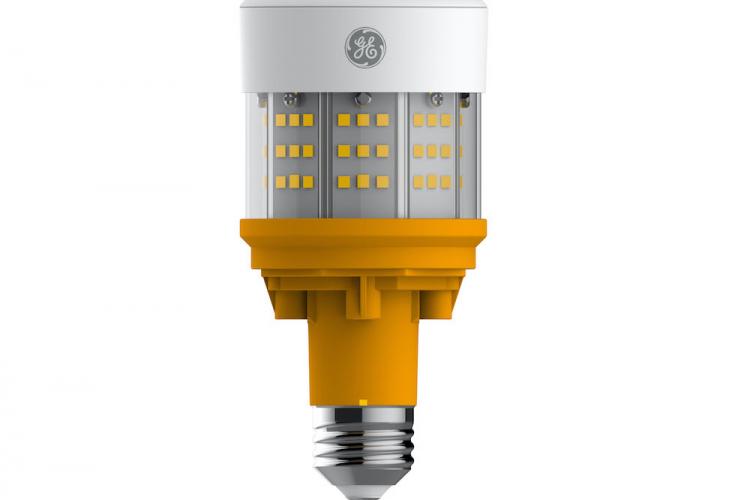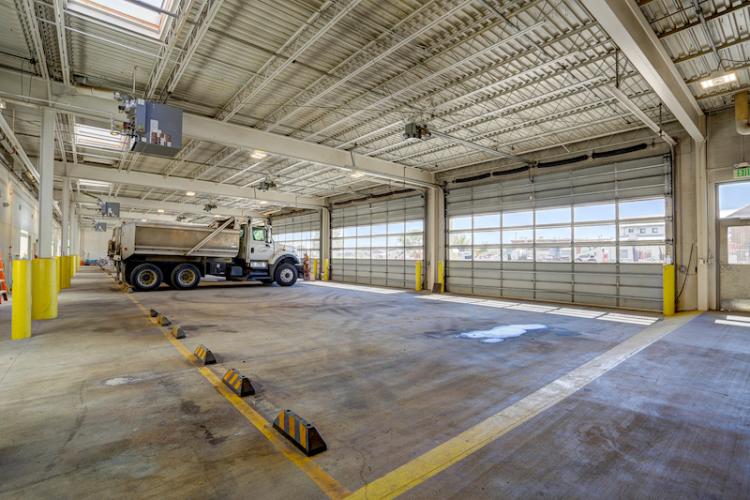Kent State University Puts Students First While Saving Big with LED
Kent State University Puts Students First While Saving Big with LED
For Kent State University, “Students First” is a mantra that drives every decision from the president’s office to faculty excellence to campus operations. Part of this pledge is creating a safe and secure environment for students as they learn to thrive, and that’s where the university’s facilities management team is making a big impact with some bright ideas from Current.
-
Parking lot security enhanced by higher lumen levels and better light quality
-
University cuts electricity use 57 percent compared to old HPS lamps
-
New LED fixtures can offer 20+ years of reliable operation
A Tall Order
Dix Stadium in Kent, Ohio, has been the football home of the Kent State Golden Flashes since 1969, with seating for 30,000 fans and parking to accommodate 9,000 cars. Like so many sports venues, however, lighting such a large space has its challenges.
“We have four 90-foot light poles in our stadium parking lot, and as part of our energy conservation project, we wanted to move to an LED solution,” explains Bob Misbrener, a project manager for Kent State’s Office of the University Architect. “Only we were having trouble finding a high-mast fixture that would give us the output and energy savings we were looking for.”
Each lofty light pole was fitted with 12 high pressure sodium (HPS) fixtures that the facilities team had grown weary of. It was difficult to achieve full light coverage across the entire lot, and the quality of the light was noticeably poor compared to other LED solutions on campus. Not to mention each HPS lamp consumed more than 1,000 watts, totaling 48,000 kilowatt hours of connected load. Kent State’s project team knew LED could deliver better performance and savings, but needed a product that could put light precisely where it was needed.
Area Lighting Innovation
Turning to Brewer-Garrett, an Ohio Energy Services Company that provides professional building and engineering services, the university started to evaluate other lighting options. For years, Brewer-Garret has helped Kent State reduce its operating costs through a variety of design/build projects using high-caliber utility analysis to create incredible efficiencies. And as part of the new lighting installation, Brewer-Garrett would take the extra step of guaranteeing Kent State all the energy savings the project was projected to create.
This award-winning facilities solutions company soon introduced university architects to Current and its new Evolve™ ERHM high-mast LED fixture that met Kent State’s criteria perfectly. Each unit delivers up to 57,000 lumens of light output and uses just 475 watts of electricity, which made it easy to brightly illuminate the Dix Stadium parking lot from end to end while using 57 percent less electricity.
“We’re saving enough energy to power 13 homes a year, and by doing so, we’re also eliminating 93 tons of greenhouse gas emissions,” Misbrener said. “On top of that, our electrical supervisor was wary about the load on the power cables that serviced the old lamps, but those concerns are gone now.”
Most importantly to Kent State, parking lot security has been enhanced thanks to the new lights. Current’s ERHM fixtures have improved security camera performance by providing a bright, neutral white light at 4000K (Kelvin, the color temperature for LED) and 70 CRI (Color Rendering Index, indicating how natural objects’ colors appear). By comparison, Kent State’s old HPS lamps achieved just 2100K at 22 CRI, producing a dingy, orangish hue that could make details hard to discern.
Even More to Like
Current was also the perfect partner for the job in the university’s estimation. As part of its service, the company conducted a photometric analysis to show Kent State how its new LED fixtures would improve parking lot optics with superior light distribution. Above all, Misbrener appreciated that the university facilities management electrical team that would perform the retrofit was closely involved throughout this process.
“It was easy to get buy-in from everyone who had a hand in seeing how this product could make a difference, and how easy it would be to retrofit to our light poles,” Misbrener said. “Brewer-Garrett and Current approached the installation in a thoughtful and studied way from start to finish, which helped things run smoothly. And what really made us comfortable was the 10-year warranty Current put behind its product. With so many lights and other needs on a campus this size, it’s one less concern for the university.”
Moving forward, facility management also has fewer maintenance worries considering Current’s LED fixtures have a 100,000-hour design life. By comparison, the university’s HPS lamps averaged just 24,000 hours of life. Based on 4,000 hours of run time annually, the new lights are expected to last 20 years or longer.
Saving Campus-wide
With the conversion of the Dix Stadium parking lot, roughly 90 percent of Kent State’s outdoor lighting is now LED, including walkways and roadways.
In fact, Kent State has reduced energy use at its main campus by 15.9 percent and at regional campuses by 21.8 percent through strategies including more efficient lighting and building systems, sensors and controls to adjust light and ventilation, and building setbacks for unoccupied zones and times.
“By addressing all aspects of campus energy, we’re doing our part to minimize cost, which is all part of offering an affordable education,” Misbrener added. “Current made it simple for us to save while putting students first.”
Want to explore big savings opportunities on your campus?







